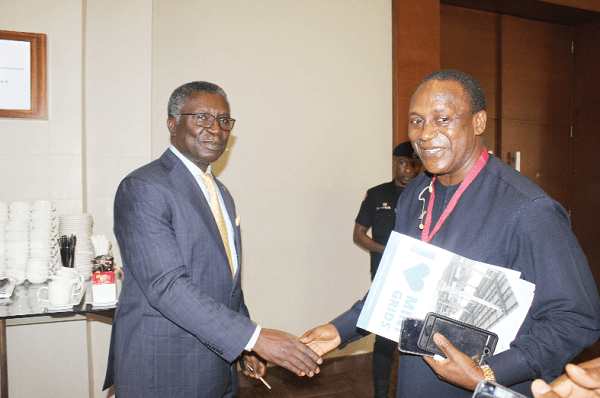
‘Prioritise mini-grid establishment to achieve access to power’
The World Bank has urged Ghana and other countries to prioritise the establishment of mini-grids in off-grid areas to boost their chances of achieving national and universal access to power by 2030.
According to a new report by the bank, mini-grids had the potential to provide electricity access for more than 500 million of the world’s population and help bridge the energy gap by the next decade.
Advertisement
The report, which was launched in Accra on Wednesday, indicated that although the global electricity access gap dropped from a high of 1.2 billion people to about 840 million in 2017, some 650 million people would still lack access to electricity by 2030.
Dubbed: “Mini grids for half a billion people — Market outlook and handbook for decision makers”, the report was based on inputs from annual learning sessions on mini-grids in countries such as Tanzania, Kenya, Myanmar and Nigeria.
It provides policy makers, investors and developers with insights into how to scale-up mini-grids.
It also took stock of the global mini-grids market and industry, analysed costs and technological innovations and showed the importance of micro-finance and income-generating uses of electricity.
Mini grids key
Speaking at the launch of the report, the Programme Manager, Energy Sector Management Assistance Programme (ESMAP) at the World Bank Group, Mr Rohit Khanna, said mini-grids were the most viable alternative to explore to bridge the energy gap.
“Estimates show that to achieve universal access to electricity by 2030, 40 per cent of installed capacity will have to come from mini-grids. Mini-grids could provide electricity for about half a billion people by 2030 with the right policies and about $220 billion of investment to build around 210,000 mini grids,” he said.
He stressed that reaching the remaining unserved population across the world required strong policies, increased private financing and comprehensive approaches to national electrification planning.
“At present, the total mini-grid investment in countries with low levels of electricity access in Africa and Asia totals $5 billion. Mini-grids are the best options for servicing remote areas that are too expensive for main grid to reach but have large enough energy demand,” he said.
He said more than 4,000 mini-grids would be deployed to Africa, representing 54 per cent of the total planned mini-grids globally.
Mr Khanna said the World Bank was committed to supporting countries to put in place comprehensive energy access programmes.
He stated that the bank was mobilising private sector investments in energy access projects, particularly in the mini-grid and off-grid initiatives, by “helping to put in place enabling policies, demonstrating viable business models and providing funding that can be used to leverage commercial financing”.
Government committed
The Minister of Environment, Science, Technology and Innovation (MESTI), Prof. Kwabena Frimpong-Boateng, said the government was committed to scaling up the mini-grid policy that was piloted in some island communities to ensure universal access to electricity.
He stressed that the Self-Help Electrification Programme (SHEP) that the government rolled out a few years ago was meant to facilitate a public-private partnership (PPP) arrangement to boost access to electricity.
He said access to electricity was key to the government’s industrialisation and agricultural policies, for which reason the mini-grids would be prioritised to reach out to the 15 per cent of Ghanaians who did not have electricity.
He said the government would take every step to reduce the national electricity access gap from the current 15 to 10 per cent by 2025.
Prof. Frimpong-Boateng disclosed that the government was collaborating with international bodies such as the European Union (EU), the Danish International Development Agency (DANIDA), the Japanese International Cooperation Agency (JICA) and the African Development Bank (AfDB) to achieve that target.



